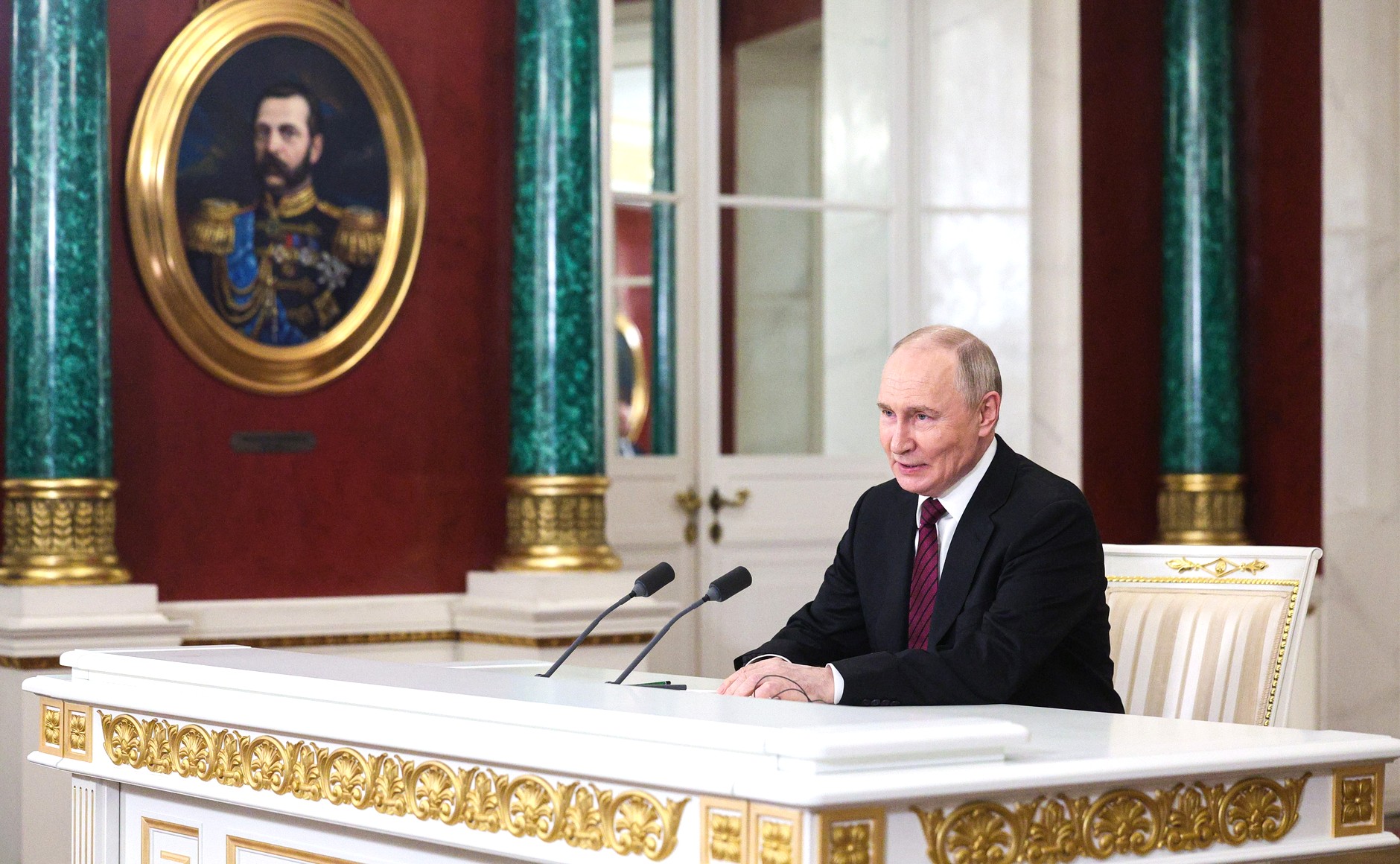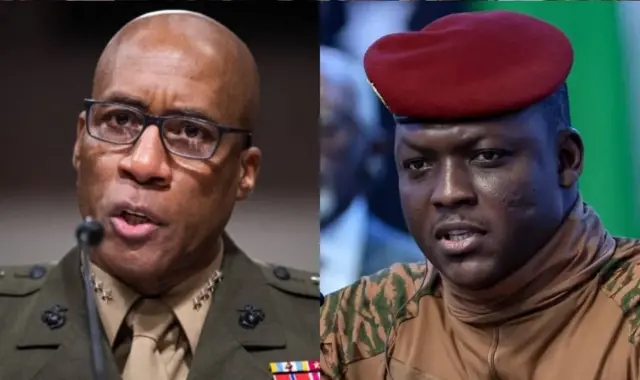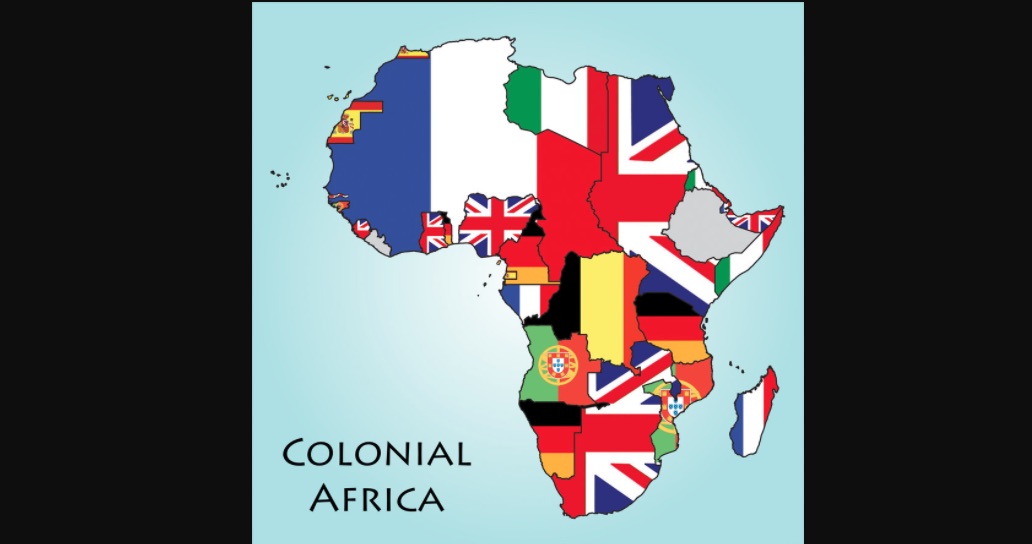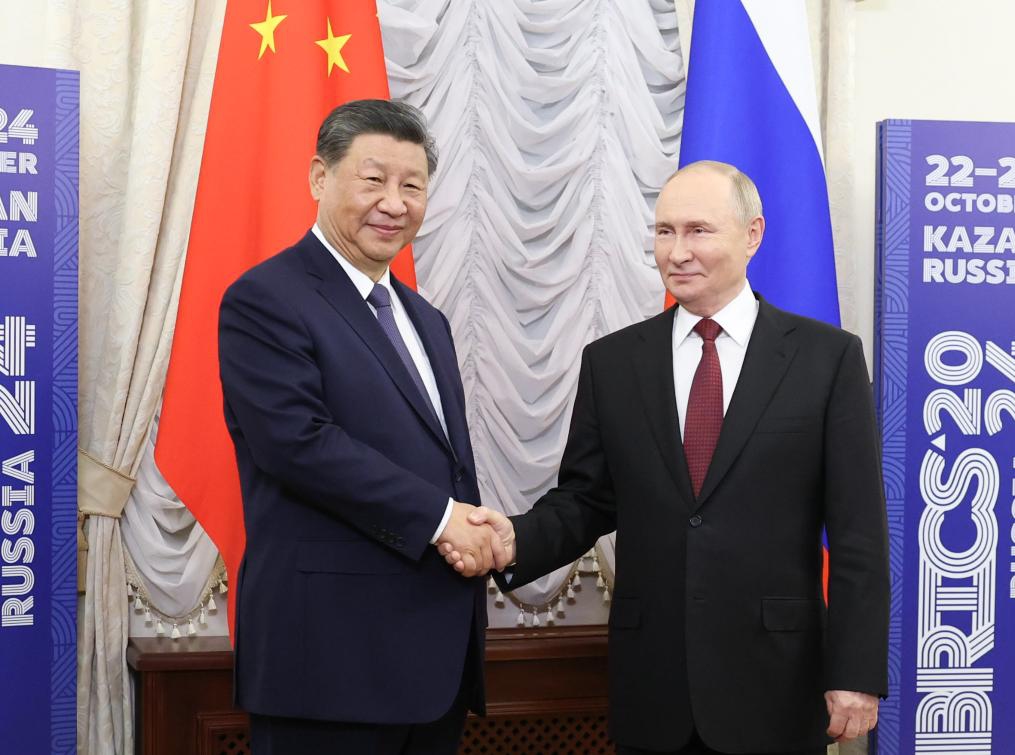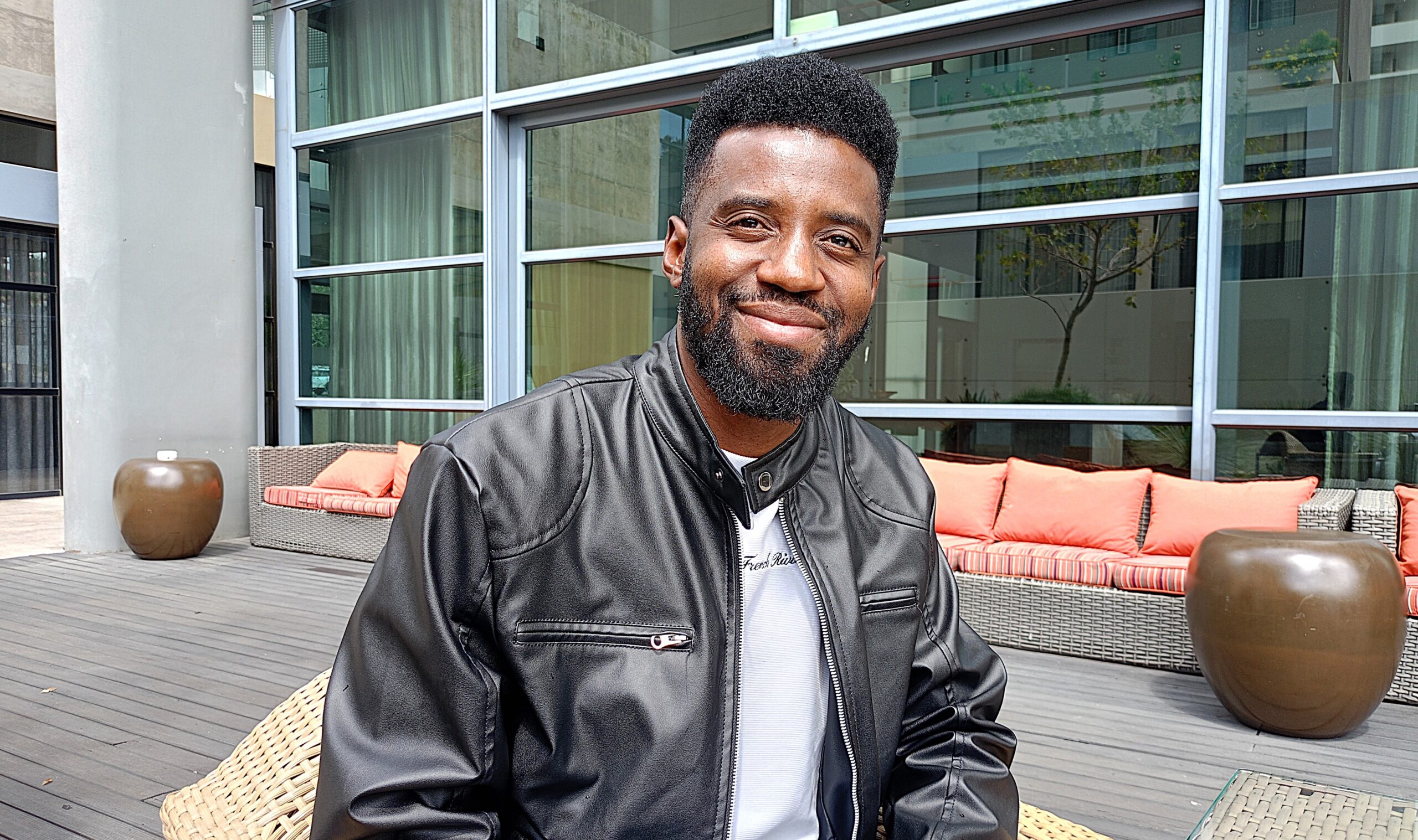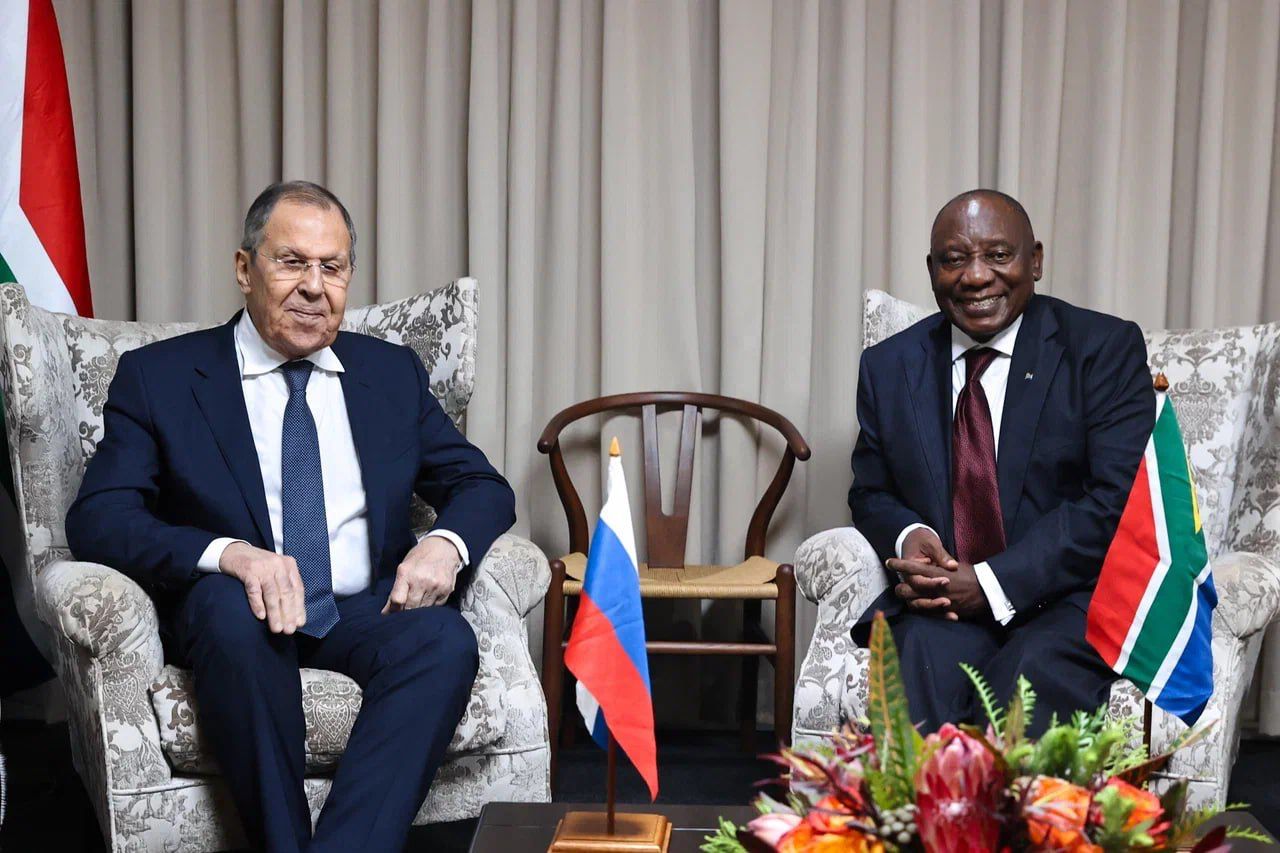
Russia's Foreign Minister Sergey Lavrov briefs President Cyril Ram,aphosa on the sedelines of the G20 Foreign Ministers Meeting in Jo'burg
On February 20, Russia’s Foreign Minister Sergey Lavrov was received by the President of the Republic of South Africa Cyril Ramaphosa in Johannesburg on the sidelines of the Foreign Ministers’ Meeting.
During the meeting, the officials reviewed the main aspects of the diverse Russia – South Africa partnership and prioritised efforts to expand political, trade, economic, investment, scientific and technological cooperation in accordance with agreements reached by the Presidents of Russia and the Republic of South Africa. They prioritised promising long-term projects in the field of peaceful space exploration.
They emphasised the commitment of both countries to continued constructive cooperation on the main issues of the international and regional agenda, including coordinated efforts at the UN, the G20 and #BRICS.

The officials also discussed the situation around Ukraine. Sergey Lavrov informed Cyril Ramaphosa about the February 18 Russia-US talks in Riyadh.
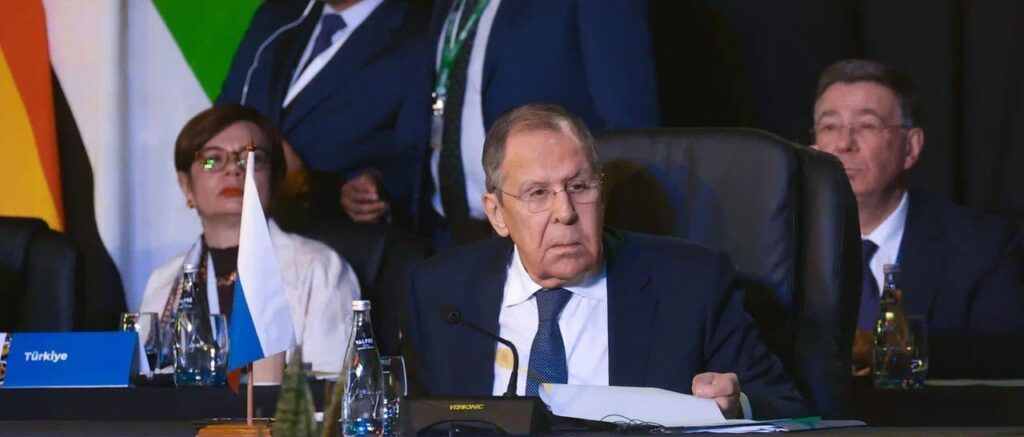
Foreign Minister Sergey Lavrov’s remarks at the G20 Foreign Ministers’ Meeting on the G20’s objectives in 2025, a discussion of planned results of South Africa’s Presidency and an assessment of the forum’s activities (Johannesburg, February 21, 2025)
In conditions of global economic fragmentation, a dialogue on global issues in the #G20 remains in high demand as never before.
We commend the Republic of South Africa’s substantial preparations for the forum and the topicality of chosen thematic priorities.
We are particularly impressed with the emphasis on a search for a common denominator in the interests of combining efforts to facilitate sustained growth and development.
We still have a long way to go for attaining the desired results, and the overall background for joint work in conditions of geopolitical confrontation, that is being incited, remains unfavourable.
The statistics are well-known: We are lagging far behind a schedule for achieving the UN’s Sustainable Development Goals until 2030, and only 17% of them are on track.
Historical experience shows that it is impossible to independently cope with common challenges and threats. This is why the G20 was established in 2008 at the level of national leaders.
At that time, it was necessary to put out the fire of a global financial crisis in emergency circumstances. It became possible to stabilise markets for a while.
However, we are now witnessing an entire cascade of intertwined crises. Behind them are armed conflicts that have been unleashed and inspired by the West, trade, technological and hybrid wars, the demolition of the international trade system, the weaponisation of the dollar that has turned into a tool for manipulations.
Nevertheless, the modern world is being transformed drastically and becoming truly multipolar. The 500-year period of Western domination is irreversibly becoming a thing of the past. It is necessary to find the strength and to accept this objective reality.
The international community does not want to be hostage to unilateral decisions of former sovereigns. This is particularly obvious today when we are celebrating the 80th Anniversary of Victory in the war against Nazism and the 65th anniversary of the UN Declaration on the Granting of Independence to Colonial Countries and Peoples as a starting point of acquiring independence by Africa, Asia and the entire Global South.
In 2022, #BRICS confidently outpaced the G7 in terms of GDP. Today, BRICS and the G7 account for 37 and 29 percent of the global GDP, respectively.
During Russia’s #BRICS Chairmanship at the Kazan Summit in 2024, the participants adopted multiple promising decisions to launch non-discriminatory, independent of anyone’s whim, mechanisms stimulating investment and trade, with due consideration for Africa’s special needs.
The neo-liberal circles in the West regard the objective process of burgeoning multipolarity as a challenge rather than an opportunity. They are putting an absurd stake on a confrontation, on inflicting a “strategic defeat” on rivals. In so doing, they use neocolonialist practices.
Under these circumstances, G20 retains its status as a useful venue for aligning the interests of states with different strategies and development levels, this primarily due to the efforts of BRICS countries.
We share South Africa’s plans to survey the G20 activities over past years. We hope that the result will enable us to reaffirm our commitment to de-politicised interaction based on the unshakeable principle of consensus with an eye to implementing the task to ensure a sustainable and comprehensive economic growth, a task set back in 2009.
This would be a worthy result of Africa’s first-ever G20 Summit.




